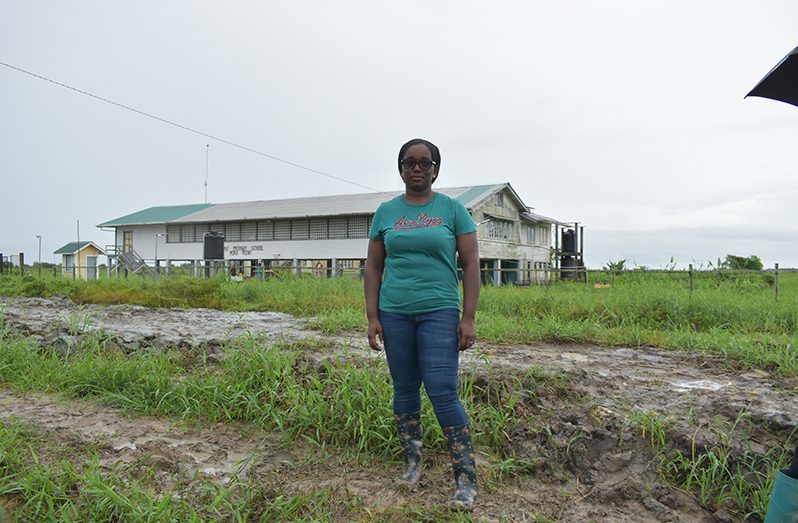– Nothing will keep the pupils of Karamat Primary from attending school
THE folks at Karamat Primary School in the Mahaicony River, including Headmistress Youlanda Simeon-Cummings, are grateful for the measures that are in place to support education in the community. Still, they woulde specially appreciate if the authorities could pay some more attention to the remote areas so that learners can be able to develop holistically.
Simeon-Cummings has been in the teaching profession for 27 years, the last four of which she has been serving as headmistress. Originally from Number Nine Village, West Coast Berbice, she joined three other teachers at the school — two from Mahaicony Creek and one from out on the road.
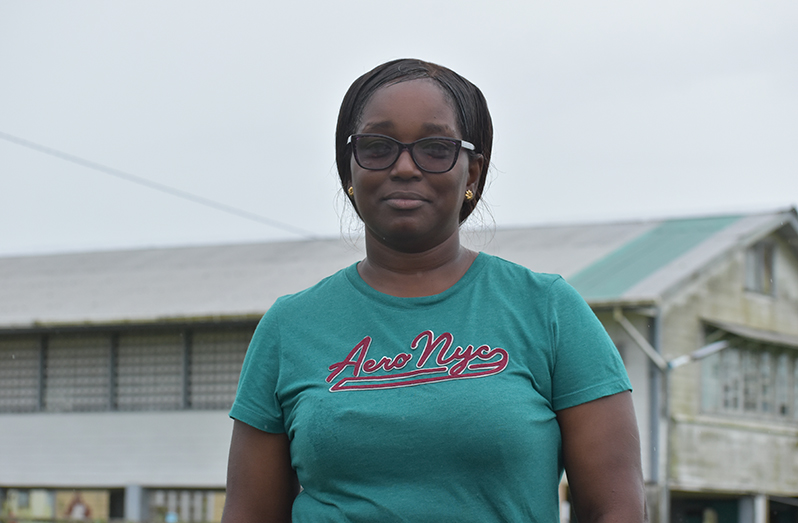
Presently, the school has 26 pupils. The catchment area for the children attending there is from Bara Bara to Pine Ground, both locations along the Mahaicony River. Almost every family has a boat, so the parents would usually drop the children off in the morning and return for them in the afternoon.
For as long as Simeon-Cummings can remember, there have been talks about a contract for constructing a road leading to the school. At the moment, the dam becomes slushy and slippery in the mud, making the commute difficult for the school children. If the weather is inclement, they’d have to attend school without shoes or wear long boots. When there is brilliant sunshine, though, and the dam is dry, they can use their footwear.
The condition of the road, though, does not deter the children from attending school during rain, thus their performance level is like that of any other school. “We have highfliers, some average and some who are low performers, so it’s not much different from the coastland,” Simeon-Cummings, who was kind enough to come out to the boat with her long boots to speak with reporters, offered.
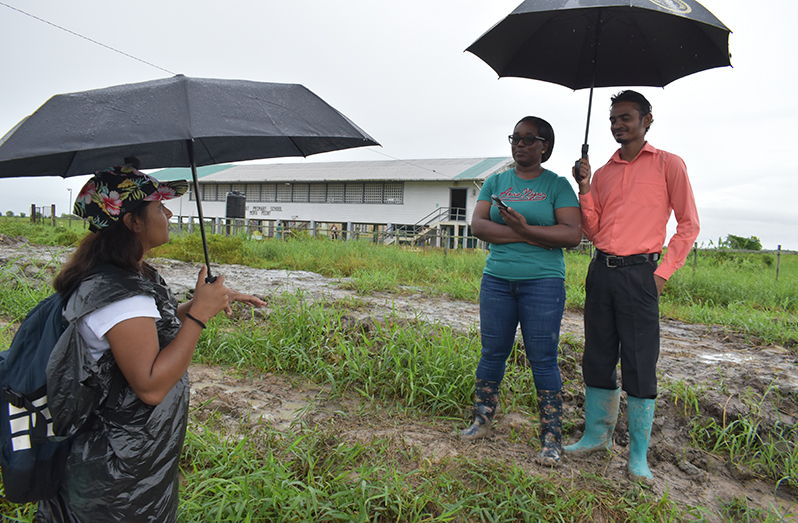
“They are not fully exposed to some of the activities that would take place on the roadside. Sometimes, because of the remoteness, they are not allowed to attend some of those activities, but punctuality is great. We don’t have any challenges with that,” she continued.
Apart from the need for an all-weather road, she said the school doesn’t benefit from a supply of water from Guyana Water Inc. (GWI), which means that they would have to depend heavily on rain or from the water in the creek. “We have a well in our compound and we would pump up water from there; we will purify it or buy distilled water for the kids.”
Measurement and Evaluation Unit
Although it was not her dream to become a teacher, she opted to get into the profession due to circumstances. Her mom being a teacher, would have encouraged her to pursue the field. “In the countryside, there are not too many job opportunities, so after I finished school, mom said I should join. Today, almost three decades later, Simeon-Cummings has no regrets.
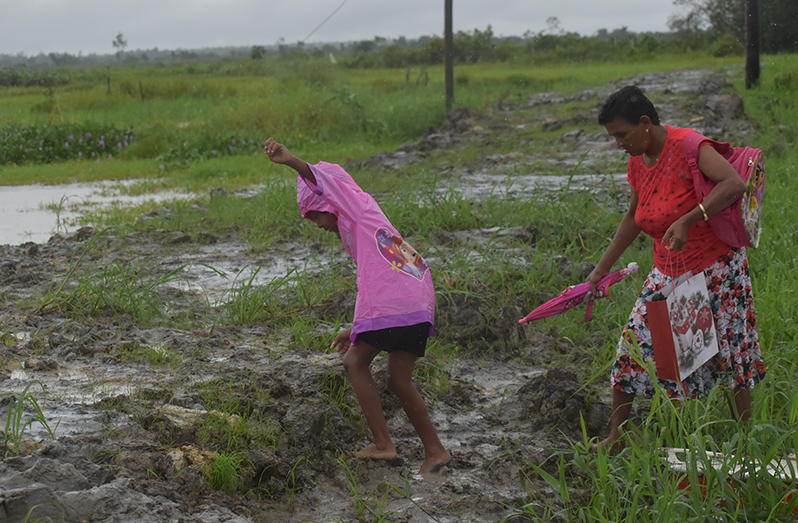
“I have grown to love it,” she said. Having started at Number Five Primary School, West Coast Berbice, she ended up at Karamat due to a promotion. “Being an administrator and sharing your knowledge and guiding teachers under your charge, over time, you just grow to love what you do,” she continued.
Before coming to Karamat, she was in the senior leadership team at Number Five School, guiding and supervising teachers.
She plans to engage in further studies to achieve the required criteria for employment in the Measurement and Evaluation Unit of the National Centre for Educational Resource Development (NCERD).
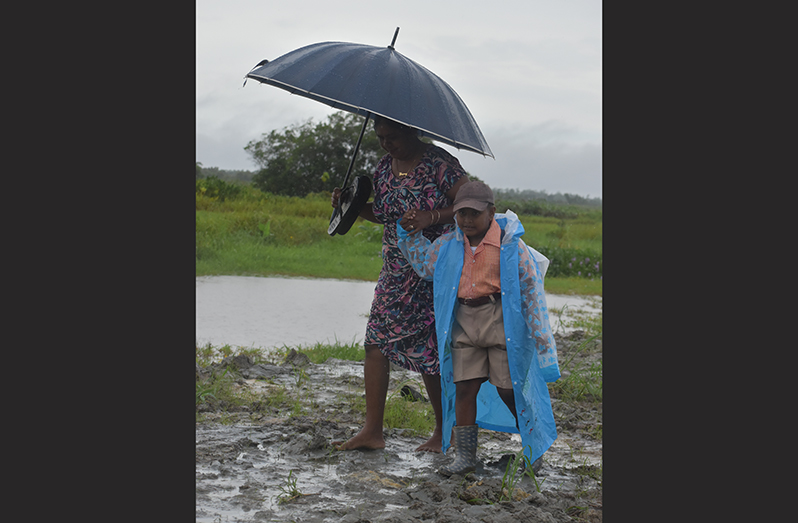
“I want to become one of the officers at NCERD, she expressed, adding, “This unit ascertains the performance of learners and deals with testing and achievement performance. So after being in the teaching profession for so long and would have helped so many learners and teachers along the way, I want to see some of the barriers that would have affected performance of learners and see what I can do to aid in the delivery of standardised tests and assessments.”



.jpg)




